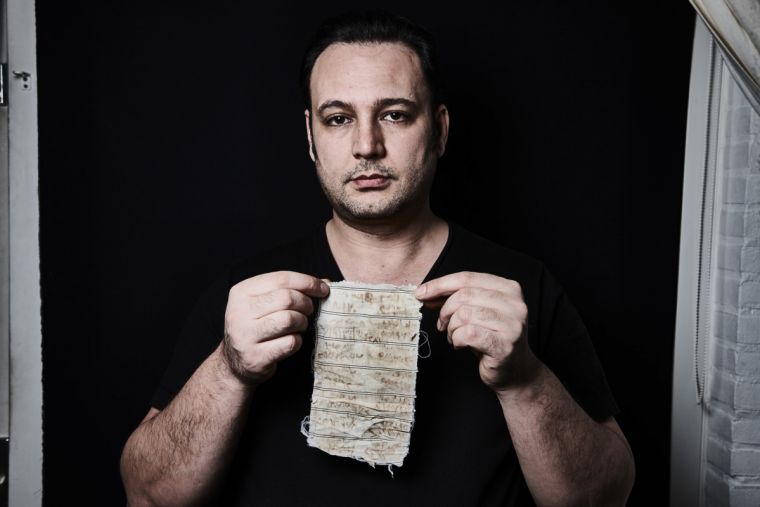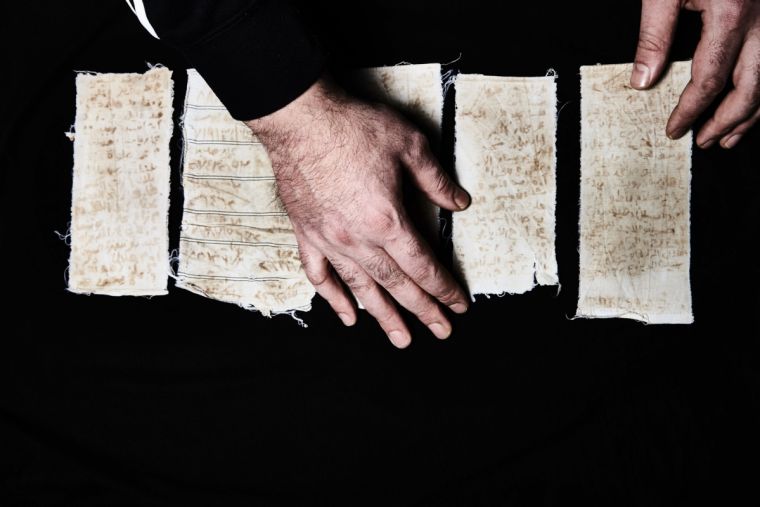'I have their blood with me': new documentary charts plight of Syria's many missing men, women and children
Written with prisoners' blood as ink, on pieces of torn shirt, one of Syria's many missing charted the names of his fellow detainees. Now, their story can finally be told.

President Bashar Assad has dismissed their stories as 'fake news', but a hard-hitting documentary broadcast next week will lay out the damning case of Syria's missing: tens of thousands of men, women and children who have been disappeared into secret detention centres.
Syria's Disappeared: The Case Against Assad tells this horrendous story through the powerful personal testimonies of three survivors alongside damning evidence smuggled out of Syria. The film follows victims, family members and international war crimes investigators as they campaign with increasing desperation for the release of the disappeared and fight to bring the perpetrators to justice.
The background to the documentary is the Arab Spring, which swept through Syria in 2011. Since then, tens of thousands have disappeared into Assad's secret detention centres, with vast numbers having been tortured and thousands dying inside.
The programme focuses in on three cases.
Mazen Alhummada is from a left-wing family who had long opposed the Assad regime. He protested in his home city of Deir Ezzor, videoing the demonstrations. Mazen fled to Damascus after twice being arrested. He describes his third arrest in a cafe: 'We were drinking tea and joking with each other, he tells the Radio Times. 'Suddenly we were raided by the security forces. They put our shirts over our heads and put me in the trunk of the car.'
Held at a detention centre run by Airforce Intelligence, Mazen recalls being subject to appalling torture before being forced into a false confession.
Taken to a military hospital on account of his injuries, Mazen made a terrible discovery. 'You go into the bathroom and you find three dead bodies on the floor. Stacked on top of one another. You close the door and open the other bathroom and find another two bodies. Hospital 601 [where he was taken] is really a slaughterhouse.'
Mariam Hallaq, a head teacher from Damascus, was a member of the ruling Baath Party and supported Assad. But her youngest son Ayham, a dentistry student, joined the protests and eventually she was converted to his cause thanks to his enthusiasm for change and for free elections.
Ayham began working with another key figure in the film, Mansour Al-Omari. The pair documented the disappearances for a Syrian human rights organisation, but their offices were raided by the security forces and they were detained and tortured. Ayham was released after three months.
But Mansour remained imprisoned, denied all contact with the world outside.
It was then that he and four of his cellmates came up with their extraordinary plan: to record the names and details of their fellow prisoners so that if one of them were released, they could inform their families where their loved ones were being held. They tore off pieces of their shirts, found a fragment of chicken bone to write with, and used rust and their own blood as ink.

Mansour explains: 'We were worried that somebody could leak this news to the jailers. You could be hanged for it if they knew about it. One of us was a tailor and he said I can put it inside the hem of the shirt and collars - nobody will suspect it.'
Mansour was eventually chosen for release and he wore the shirt out and then contacted the families. Of his group of five detainees, only one other survived. 'When I look at those shirt pieces, written with blood, blood of people who are still there, some of them I knew, I got news they are dead - I have their blood with me,' he says. 'These pieces of shirt are filled with their souls.'
The film also features Stephen Rapp, the former US Ambassador for Global Criminal Justice. Rapp has prosecuted some of the worst mass atrocity crimes in recent history, and he says the evidence against the Syrian regime is the strongest he has ever seen. That evidence includes over 600,000 pages of regime documentation smuggled out of Syria and into Europe, by the Commission for International Justice and Accountability.
Yet extraordinarily, action through the International Criminal Court has been blocked at the UN. Now, Rapp is working to open criminal cases against the Syrian regime in European national courts. The film shows the first case filed in Spain.
Syria's Disappeared: The Case Against Assad is broadcast on Channel 4 on Thursday 23 March, at 10pm.











